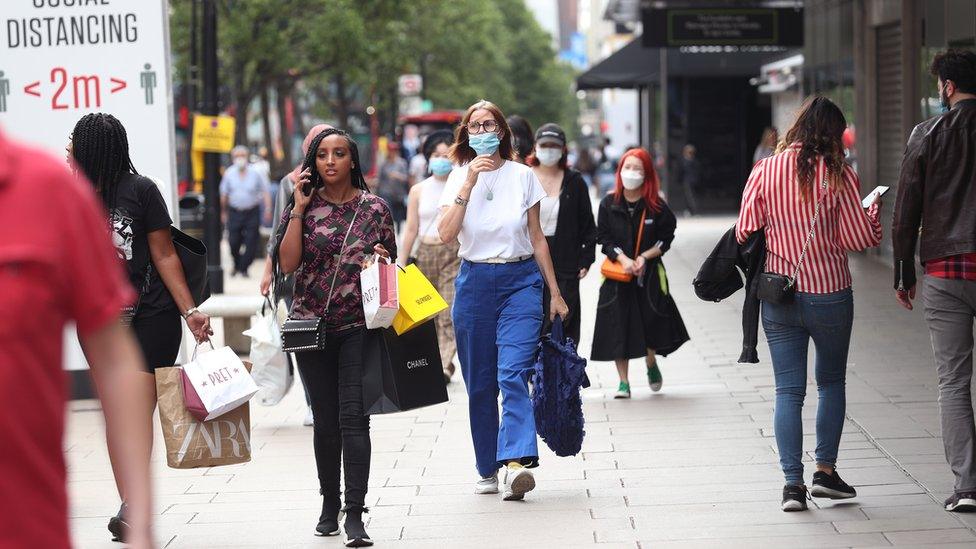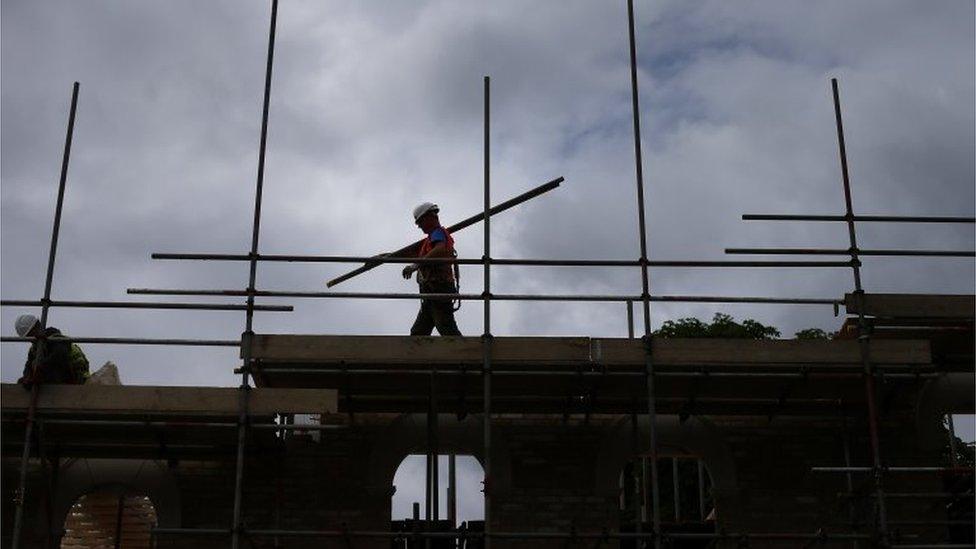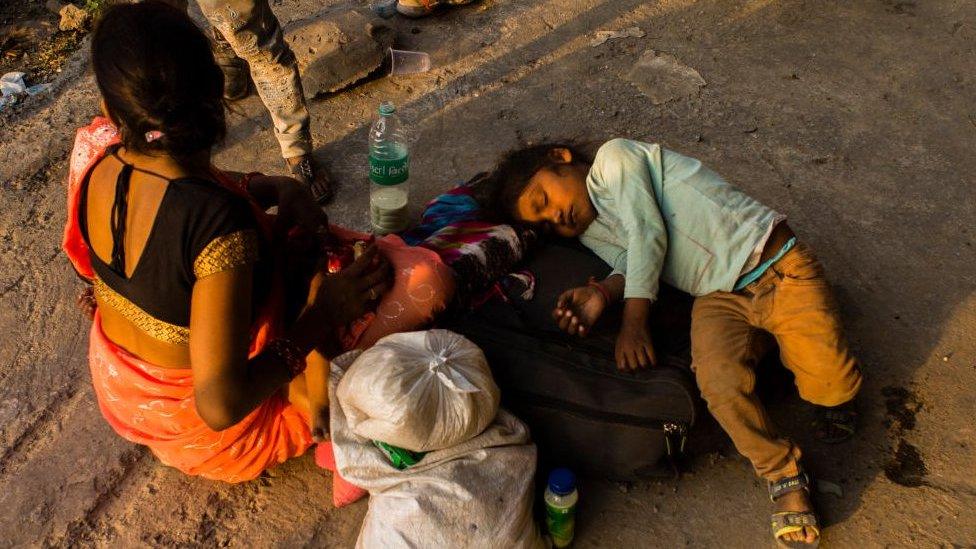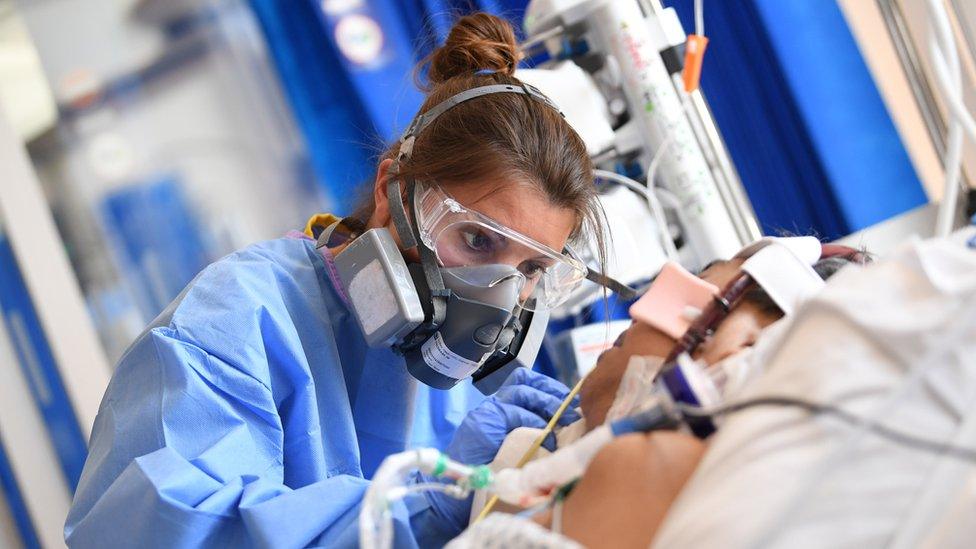Coronavirus: UK's pandemic planning an 'astonishing' failure, say MPs
- Published
- comments

The PAC said the Treasury did not announce plans for "significant" support for businesses and individuals until 11 March
The government's failure to plan for the economic impact of a pandemic is "astonishing", a committee of MPs says.
The Commons Public Accounts Committee said the economic reaction to Covid-19 had been rushed and the impact could be "long-term".
It added the Treasury had waited until mid-March before deciding on economic support schemes to put in place.
But the government said it regularly tested its pandemic plans, which enabled a "rapid" response.
Labour accused ministers of being "incompetent" in dealing with coronavirus.
Last month, official figures showed that the UK economy shrank more than first thought between January and March, contracting 2.2% in the joint largest fall since 1979.
In its report, the Commons Public Accounts Committee said the government needed to "learn lessons" and "ensure it doesn't repeat its mistakes again in the event of a second spike in infections - or another novel disease outbreak".
"We are astonished by the government's failure to consider in advance how it might deal with the economic impacts of a pandemic," it said.
The report noted the government undertook at three-day pandemic simulation in 2016 known as Exercise Cygnus.
But the committee said the Department for Business, Energy and Industrial Strategy "was not even aware of the exercise", saying: "It is astounding that the government did not think about the potential impact on the economy."
And it said the Treasury did not announce plans for "significant funding" to support businesses and individuals until the Budget on 11 March "and it did not become clear to the Treasury until the following week that a furlough scheme would be needed".
The first reported cases of coronavirus confirmed by the chief medical officer in England was on 31 January.
The committee said a "lack of prior thinking on the types of schemes that may be required led to a delay in implementation... particularly in relation to the self-employed scheme where it lacked sufficient, reliable information" on recipients.
The report called for more transparency in government decision making and that the Cabinet Office should review crisis command structures to "ensure longer-term decision making".

Last month, official figures showed that the UK economy shrank more than first thought between January and March
The committee was also critical of how the issue of personal protective equipment (PPE) was handled, saying there were "fundamental flaws in the government's central procurement and local distribution of vital goods and equipment".
The report also warned of the pandemic's impact on children, saying: "It will be a huge task to ensure lengthy school closures do not have long-term or irreversible effects on children and young people's future health and education."
'Leaving sectors behind'
The committee's chairwoman, Labour MP Meg Hillier, said: "Pandemic planning is the bread and butter of government risk planning, but we learn it was treated solely as a health issue, with no planning for the economic impacts.
"This meant that the economic strategy was of necessity rushed and reactive, initially a one-size-fits-all response that's leaving people - and whole sectors of the economy - behind."
A government spokesman said: "As the public would expect, we regularly test our pandemic plans, allowing us to rapidly respond to this unprecedented crisis and protect the NHS.
"It was clear that coronavirus would affect all areas of the country, that's why we immediately put in place an unprecedented initial economic support package for jobs and business worth £160bn."
The spokesman said the next stage of the economic response will make a further £30bn available, including more than £100m "to support children to learn at home".
The government has committed almost £28bn to support councils, businesses and communities in local areas, he said.
For Labour, shadow chief secretary to the Treasury Bridget Phillipson said: "It is a sorry catalogue of government failure. Their planning was incompetent and their response has been slow.
"We urgently need the prime minister to get a proper grip on tackling the pandemic."
- Published30 June 2020

- Published30 June 2020

- Published24 January 2021

- Published7 June 2020

- Published5 June 2020
